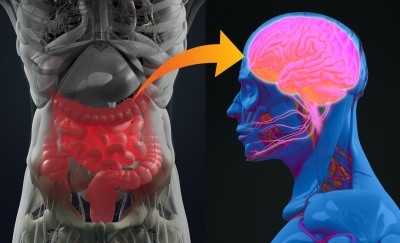Study asks, ‘Could faecal transplants slow down age-related cognitive decline?’

Teams from the UK and Italy highlight findings that stress the importance of the intestinal microbiota on the gut-brain axis and age dependent changes of the gut microbiome on spatial learning and memory.
“Ageing is an inevitable process that starts immediately after birth and ultimately leads to physical health problems as well as a decline in psychological well-being and cognitive function,” says Dr David Vauzour, from the university of East Anglia’s Norwich Medical School.
“Research has shown that the ageing process may be linked with age-related changes in our gut microbiota.
“We wanted to see whether transferring gut microbes from older to younger mice could affect parts of the central nervous system associated with ageing.”
The gut-brain axis remains key to shaping aspects of behaviour and cognitive function with alterations in gut microbiota composition via diet or antibiotics enough to change brain chemistry and function.
Dysbiosis in particular is linked with neurological disturbances such as depression and autism, along with neurodegenerative diseases such as Parkinson’s disease and multiple sclerosis.
FMT have shown efficacy in GI-tract-related diseases and CNS disorders leading the team to suggest that age-associated changes in the microbiota composition also affect cognitive decline in the elderly.
Study details
Along with colleagues from the Quadram Institute in Norwich, the research team began transplanting faecal matter from older adult mice to younger adult mice.
The team then used a range of cognitive and behavioural tests to assess the young adults for severity of anxiety, exploratory behaviour and memory.
Post transplantation, the team found that while the young adults showed no significant changes in markers of anxiety, explorative behaviour or locomotor activity, they did show impaired spatial learning and memory as measured in a maze test.
These changes were accompanied by changes in protein expression, particularly those linked with synaptic plasticity and neuro transmission. Changes to cells in the hippocampus part of their brains – responsible for learning and memory were also observed.
Further findings revealed lower population numbers of bacteria linked to short-chain fatty acid (SCFA) production (Lachnospiraceae, Faecalibaculum, and Ruminococcaceae) and CNS disorders (Prevotellaceae and Ruminococcaceae) was observed.
“Our research shows that a faecal transplantation from an old donor to a young recipient causes an age-associated shift in the composition of gut microbiota,” comments Dr Vauzour.
“The procedure had an impact on the expression of proteins involved in key functions of the hippocampus – an important part of the brain that has a vital role in a variety of functions including memory, learning but also in spatial navigation and emotional behaviour and mood.
“In short, the young mice began to behave like older mice, in terms of their cognitive function.”
Despite the findings, the team reports that other deficits triggered by the ageing process, such as locomotor activity and anxiety-like behaviour, were not affected by the FMT procedure.
The researchers put this down to age-associated shifts of microbiota tending to have a more selective impact on cognition and memory in mice.
The gut & SCFA production
Further explanations focus on the association between lower levels of SCFAs and decreased representation of Lachnospiraceae and Ruminococcaceae.
“It should be noted that the biological relevance of increased levels of faecal propionate, butyrate and isobutyrate being significantly correlated with increased relative abundance of lactic acid bacteria such as Staphylococcus, Jeotgalicoccus and Facklamia is currently unknown.
“Our knowledge as to the ability of these species to produce SCFAs other than acetate or lactate from fermentation of carbohydrate or protein sources is poor as is our knowledge on cross-feeding potential of the mouse gut microbiota.”
Professor Claudio Nicoletti, from the University of Florence, Italy, adds, “While it remains to be seen whether transplantation from very young donors can restore cognitive function in aged recipients, the findings demonstrate that age-related shifts in the gut microbiome can alter components of the central nervous system.
“This work highlights the importance of the gut-brain axis in ageing and provides a strong rationale to devise therapies aiming to restore a young-like microbiota to improve cognitive functions and quality of life in the elderly,” he adds.
Source: Microbiome
Published online: doi.org/10.1186/s40168-020-00914-w
“Faecal microbiota transplant from aged donor mice affects spatial learning and memory via modulating hippocampal synaptic plasticity- and neurotransmission-related proteins in young recipients.”
Authors: Alfonsina D’Amato et al















